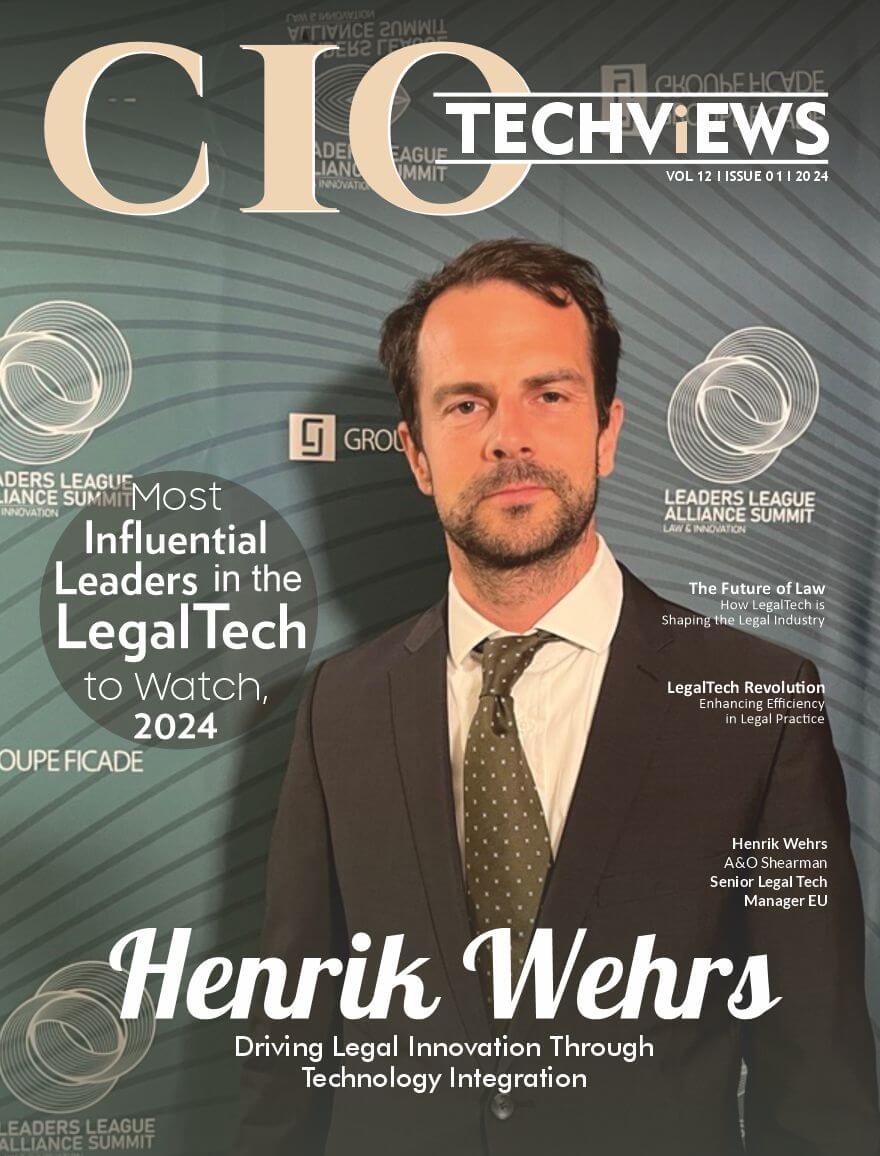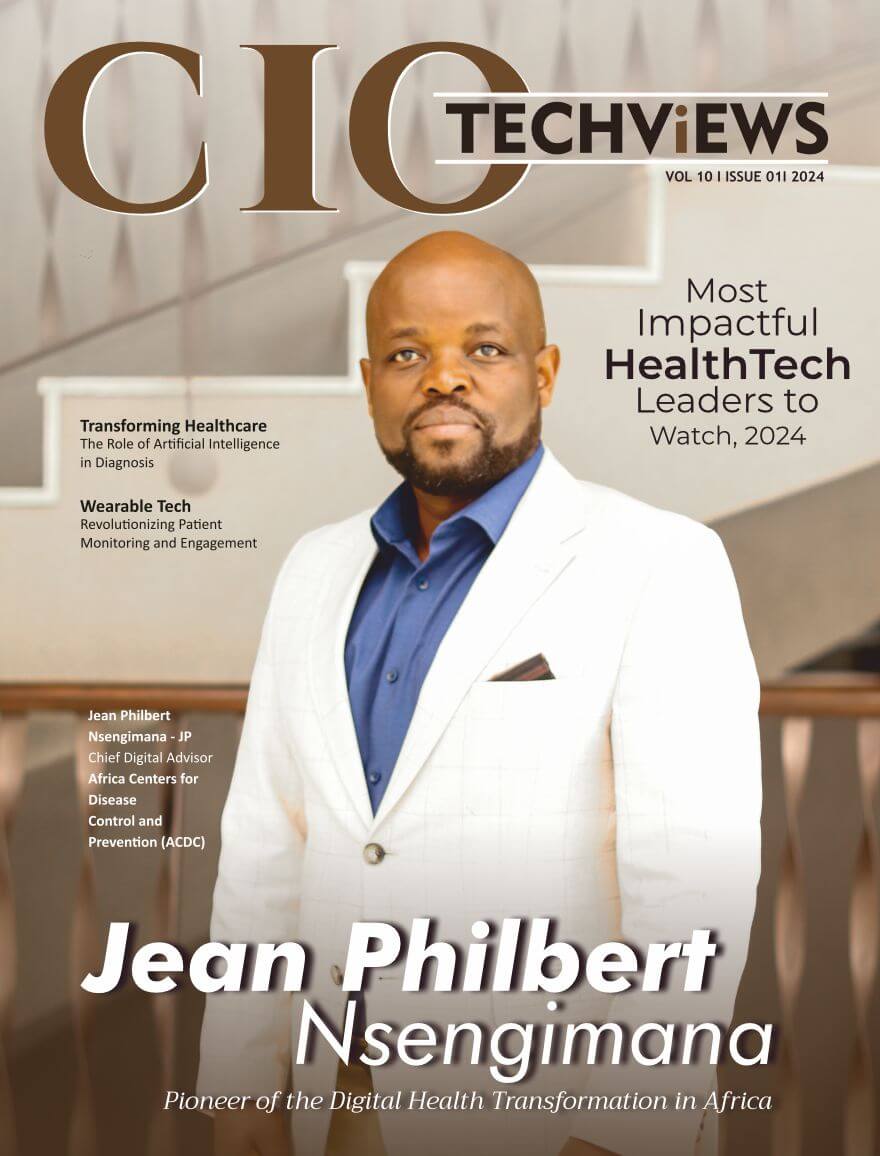Technology has become a cornerstone of progress, impacting industries across the globe. The legal sector is no exception, as advancements in artificial intelligence, automation, and analytics continue to reshape how legal services are delivered. These innovations are not only optimizing efficiency but also redefining how legal professionals engage with clients, navigate complexities, and drive business outcomes. With the rapid integration of technology, the legal industry is at a paramount moment, balancing tradition with transformation to meet modern demands.
Tyrilly Csillag, Director of Legal Transformation, is at the forefront of this significant shift. With a career rooted in law and an early fascination with technology, Tyrilly has merged these passions to redefine how legal professionals operate. Her expertise lies in leveraging cutting-edge tools to streamline workflows, enhance decision-making, and empower legal teams to focus on impactful work. Through her leadership, she is bridging the gap between technological capabilities and the practical needs of lawyers, inspiring change across the sector.
At Thomson Reuters, innovation is more than a goal—it is a commitment. As a global leader in providing trusted legal solutions, the company has consistently invested in technology to support professionals in delivering excellence. From AI-enabled research tools to comprehensive practice management platforms, Thomson Reuters equips legal teams with the resources to thrive. By prioritizing technological innovation, the company continues to shape the future of the legal industry, ensuring its clients remain ahead in a competitive environment.
Let’s delve in to learn more:
Can you share with us the journey that led you to your current role as Director of Legal Transformation? What inspired you to focus on legal technology and innovation?
I’ve been intrigued by technology from a young age, dating all the way back to when my father brought home our very first home computer. I was always interested in pursuing law as a career, and when I enrolled at university, there really weren’t courses available that looked at the intersection of technology and law; it was too new, but that made me even more curious! Fast-forward several years of legal practice spanning private practice and in-house roles, and I started working as an in-house lawyer at IBM. Seeing how transformational technology can be across multiple industries really piqued my interest, and nearly a decade later I was excited to then join Thomson Reuters in a role that had a direct impact on the way lawyers work. With Thomson Reuters’ extensive investment in AI technology coupled with their trusted reputation for legal content and know-how, it’s a full circle moment to be working in a space that is core to my passion and transforming the way my legal peers work for the better.
As a thought leader and legal technology advocate, what are your key responsibilities in driving legal transformation?
In my role, I have access to a breadth of legal know-how and technological solutions that I would have loved myself in legal practice. I understand first-hand that every legal team, whether in a firm, corporation or government department, is in a unique place on their technology transformation journey, and it really is a journey.
The practice of law is evolving just as fast as the interests of our clients. Bringing together the latest market research and industry insights, with a deep understanding of how a particular team of lawyers is functioning now and their aspirations to support their clients’ growth, allows me to strategize how legal technology can enable their transformation to achieve that growth outcome.
It’s an exciting time to be a lawyer and, for our clients, a lawyer with access to transformational legal technology tools.
How do you keep the wider legal community informed with industry insights, and what strategies do you employ to connect lawyers and their teams with future-fit legal tech solutions?
In any given week, you’ll find me hosting a roundtable, speaking at an event or moderating a workshop sharing the latest legal industry trends and what this means for lawyers and the legal community more broadly. I’m also quick to share our latest thought leadership reports and insights from the Thomson Reuters Insitute on social channels like LinkedIn.
Recently, I’ve been hosting Thomson Reuters’ Enabling Legal Innovation podcast, which has been popular. Having worked in the legal community for so many years and actively involved in a range of industry representation groups, I have a strong network that enables me to talk to lawyers as a peer and an advisor.
It’s important to understand the team and the business environment lawyers operate within so that we can support implementing legal technology that is right for now and can scale over time.
In your experience, what are some of the most impactful ways that technology can enhance legal practice and improve efficiency for in-house legal teams and law firms?
The research tells us that lawyers want to be doing meaningful legal work, and yet when you work through what a lawyer does on any given day so much of it is down to process and admin. Drafting emails, obtaining approvals and signatures, checking budgets, reviewing invoices and juggling service providers: all things that can now be automated and handled by trusted tech – elevating the capacity of the lawyer to do strategic legal work. The research tells us this is impactful for recruiting and retaining talent, amongst other benefits such as generating data-driven insights and enabling informed conversations with the C-suite.
Another enhancement is making sure that lawyers have the most up-to-date legal content, quickly and where and when they need it, so they are able to offer tactical advice, which opens opportunities for their client’s interests to develop and grow. For example, being able to utilize AI-enabled legal technology to identify trends that may unlock growth opportunities and/or save the client money.
As the host of the Enabling Legal Innovation podcast, what topics and themes do you explore, and what insights do you hope to share with your audience?
I’ve been thrilled with how popular the podcast has been and how well it has been received! We’re focused on bringing the latest insights on how rapid technological advances, such as AI, are driving innovation within the legal industry and unpacking those themes in a useful way for listeners. So far, our audience has heard from our Managing Director, Chief Product Officer, Vice President and more, and in addition to technology itself, we’ve covered emerging issues such as AI ethics and model governance. In coming episodes, listeners will hear from a variety of experts, including partners, in-house counsel and trailblazing lawyers across different practice areas. The goal is to ensure we’re clarifying the complex and informing the way forward.
How do you foster collaboration and innovation within Thomson Reuters and across the legal community?
One of the joys of my role is connecting people with common purposes and interests to do good work and achieve great things. Within Thomson Reuters, I am part of several working groups and project committees and support diversity and well-being initiatives. As part of the legal community, I have sat on different committees and worked with various associations to support conversations and bring about positive change. From my time as a young lawyer, I’ve always been involved in professional groups within and beyond the workplace, and it’s helped me to understand how different people think and work, what they need and how I can help.
Thomson Reuters is an active part of the legal community. In our capacity as a service provider across legal industries and spanning geographies, we are uniquely placed to bring legal professionals together to enable peer learning and networking.
Our corporate purpose is to inform the way forward, so fostering collaboration and innovation across the legal community and within Thomson Reuters is core to that purpose and fundamental to my role.
What leadership principles guide your approach to leading legal transformation initiatives?
It’s important to me that every customer experiences the best of Thomson Reuters in every interaction with us. As a company, we want to strategically partner with our customers to help them and their businesses grow, and we know we have the best people and the best technology to make that happen efficiently and effectively.
This transcends our legal transformations into tax and accounting and professionals more broadly. It’s a continuous conversation underpinned by trust, expertise and commitment.
How do you balance the intersection of legal expertise and technological advancements in your role?
I always feel really empowered because I have full access to Thomson Reuters’ complete suite of legal solutions: Westlaw and Practical Law for legal research and know-how, HighQ for matter management, contract lifecycle management and document automation, and Legal Tracker for managing external counsel spend.
With the launch of CoCounsel Core earlier this year, we now also have an AI legal assistant for lawyers, which will entirely transform the way lawyers work across the board.
The most exciting thing is that in addition to acquiring innovative technology companies such as Casetext, Thomson Reuters is investing at least $100m+ USD annually into growing the capabilities of our existing solutions, including AI enablement. So the ways of working for lawyers will just get better and better, and I have the privilege of being at the heart of the conversation.
What advice would you give to aspiring legal professionals who are interested in leveraging technology to drive innovation in the legal industry?
An innovative mindset will always serve you well in enhancing your own ways of working, and it will also help you be an effective, strategic advisor to your clients.
We are already seeing junior lawyers graduating with the expectation that their employers will provide them with the tools necessary to perform at their best: legal research, know-how and process solutions that empower them to do impactful legal work and develop professionally.
Nearly 20 years ago, when I started legal practice, these were tools for the lucky few. Nowadays, and certainly going forward, lawyers cannot work effectively, keeping up with legal developments, regulatory changes, and evolving business needs at scale without them.
















